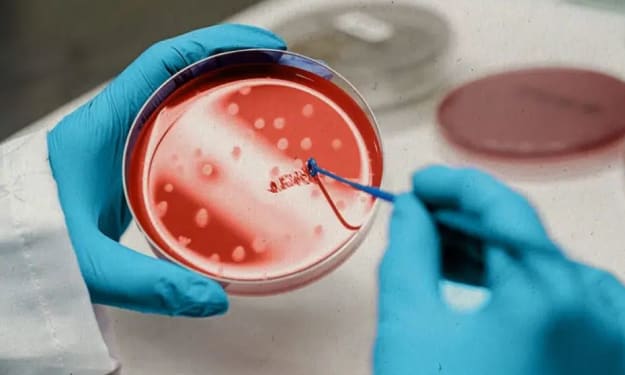
The struggle of finding healthy meals for kids is real. When you tirelessly make purees or create ways to include vegetables, it can be frustrating when your child won’t eat what you’ve prepared. But you know the importance of nutritious food for your child’s fast-growing body and mind. You want to cook up healthy toddler meals in your time-crunched schedule. When doing what’s best for your kids’ nutrition, it’s essential to understand how to ensure the quality and safety of the food you give them.
Choose Fresh Ingredients
Eating quality food starts with purchasing quality ingredients. It is important to look for fresh and non-GMO items, especially for children under five. When you buy fresh produce or meat, you are offering more nutritious meals. Canned food is typically processed and contains many preservatives to increase shelf-life. Continuous consumption of these items can lead to low immunity in the long run. Processed food items might taste better and be more tempting to purchase. However, these contain additional levels of sodium and sugar, which can cause early obesity, diabetes, and impaired growth development in kids.
Cook and Reheat Food to Safe Temperatures
Many bacteria are present in raw food such as milk, meat, eggs, flour, and fish. It is imperative to cook these food items to a minimum correct temperature before consumption to avoid food poisoning and other complications. You should also be mindful about reheating leftover food. As a thumb rule, it is advised not to reheat food twice.
Read Food Labels for Allergy Alerts
If you have a family history of allergies caused by certain ingredients like dairy, nuts, or gluten, always read the labels of the foods to check for allergy advice before consumption. Allergies can be life-threatening in worse-case scenarios. Fortunately, modern food technology makes healthy substitutes for many foods that cause allergic reactions. These offer a safe option and variety for your child.
Follow Basic Hygiene
It is easy to forget basic hygiene measures when preparing food for babies and kids, especially if you are in a hurry. Make sure to wash your hands with soap before cooking, rinse fresh produce properly, store leftovers in food-grade containers, and keep separate boards for chopping produce and meat. As children grow older, teach them to follow hygiene habits early. By following a few consistent measures, it is possible to offer nutritional food to your children for healthy development safely.
5 Essential Nutrients That Every Baby Needs
As parents, we do know that a balanced diet is essential for a baby’s optimal growth. But, very few of us know what constitutes a healthy diet and the importance of these nutrients in ensuring long-term health. Here are five essential nutrients every child needs:
1. Protein
2. Carbohydrates
3. Fats
4. Iron
5. Calcium
1. Protein:
Protein, along with carbohydrates, lipids, and nucleic acids form the building blocks of life. They’re essential not just for babies, but for adults as well. Proteins help repair damaged cells and build new ones. In a baby’s body, this essential nutrient breaks down food to convert it into amino acids that are used to grow and maintain bones, muscles, hair growth, etc. While breast milk and formula is an important source of protein for babies until 4 to 6 months, they should be supplemented with protein-rich baby foods. Some of the fruits and vegetables rich in proteins include broccoli, cauliflower, apricots, kale, and peas.
2. Carbohydrates:
Carbohydrates are a very important nutrient for babies. They’re an infant’s major source of fuel and essential for its growth and development. In fact, breast milk contains 6.9% to 7.2% of carbohydrates. Foods rich in carbohydrates include rice, sweet potato, bananas, avocados, and lentils.
3. Fats:
Fats are essential for a baby to ensure healthy brain development. The baby’s brain grows rapidly in the first 1,000 days of its life. A diet rich in Omega-3 fatty acids helps in the development of brain cells and is good for the retina as well. Food such as avocado, coconut milk, coconut oil, and pumpkin seeds are very good fats for infants.
4. Iron:
While breast milk and formula provides enough iron for babies until they are 4 to 6 months old, they need to be supplemented with iron-rich foods after this period. Iron helps the body produce hemoglobin, an essential nutrient of red blood cells that transports oxygen throughout our body. Anemic babies are known to experience behavioral and cognitive development. And that is why the American Academy of Pediatricians recommends iron-fortified foods for baby. Foods rich in iron include leafy greens, peas, berries, apricots, and lentils.
5. Calcium:
What Essential Fatty Acids are to the brain, calcium is to the bones. It not only helps build bones but is also essential for the baby’s muscle growth and helps promote nerve function. It helps the blood clot properly, thereby preventing bone-related issues later in life. Besides milk and cheese, some other important sources of calcium include green leafy vegetables, butternut squash, and chickpeas.
You could either spend time preparing baby blends that include all these nutrients or call us to order fresh organic baby food. All our ingredients are preservative-free, certified organic and non-GMO and made using cutting-edge technology that preserves the food’s nutritional quality.
About the Creator
Sarah
With an experience of 10 years into blogging I have realised that writing is not just stitching words. It's about connecting the dots of millions & millions of unspoken words in the most creative manner possible.






Comments
There are no comments for this story
Be the first to respond and start the conversation.